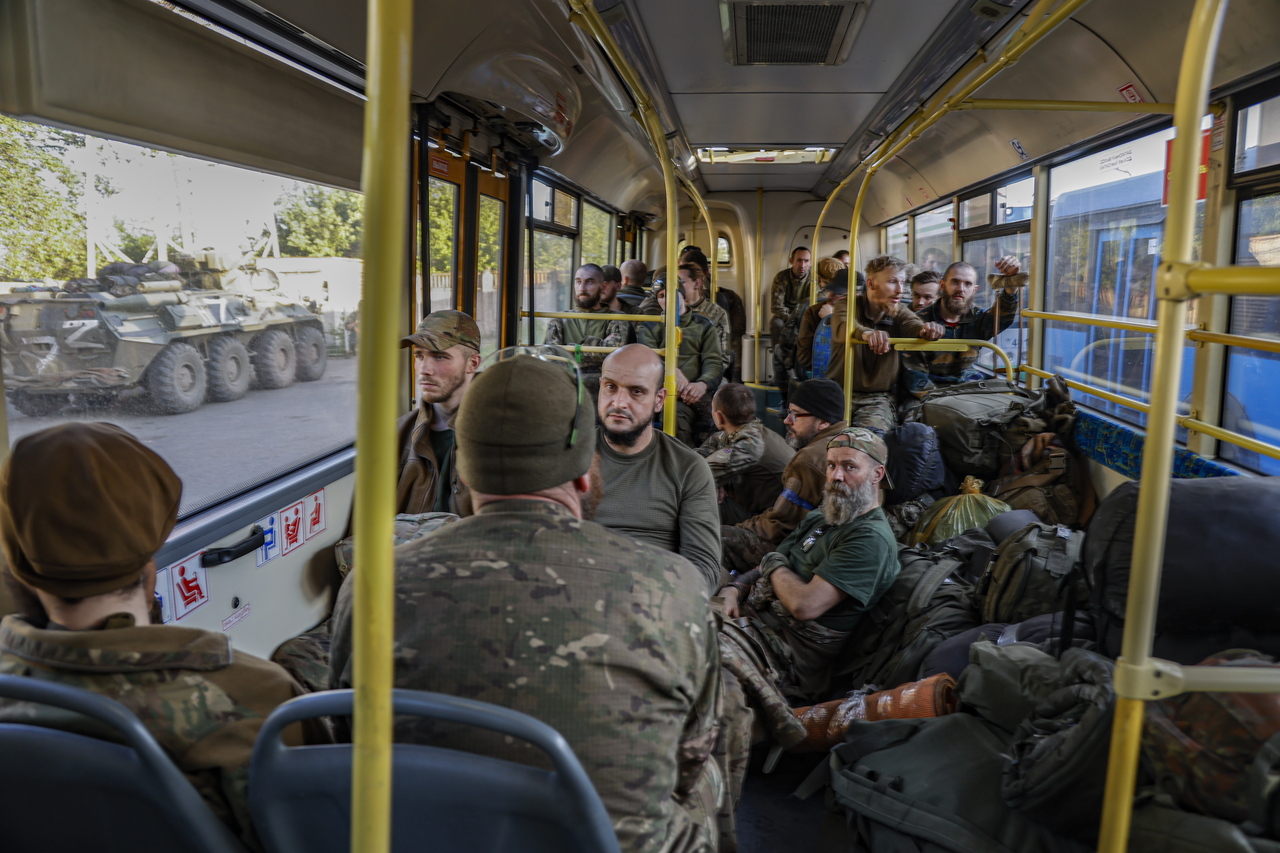Moscow sends signals it may prosecute Mariupol's defenders
Sign up now: Get ST's newsletters delivered to your inbox

Ukrainian servicemen being evacuated from the besieged Azovstal steel plant in Mariupol, Ukraine, on May 17, 2022.
PHOTO: EPA-EFE
MOSCOW (NYTIMES) - When Moscow signalled Tuesday (May 17) that it might level war crimes charges against Ukrainian soldiers who were evacuated from the besieged steel plant in Mariupol, it cast a shadow over the negotiations that led to their surrender and raised fears for the fate of the remaining soldiers still holding out at the plant.
At least 264 soldiers were evacuated from the destroyed plant Monday night and Tuesday and taken to Russian-controlled territory - among them 53 gravely injured - after extremely delicate and secretive negotiations between Russia and Ukraine.
While Ukrainian authorities said the fighters would be exchanged for prisoners of war, Russia's Investigative Committee, its equivalent of the FBI, said Tuesday they would be interrogated to "check their involvement in crimes committed against civilians."
And the prosecutor-general's office asked Russia's Supreme Court to declare the military unit to which most of the captured fighters belong, the Azov regiment, a terrorist organisation.
That prospect led to questions about the viability of the deal Ukraine had made with Russia to surrender.
Ukrainian officials have declined to discuss the operation in detail or to lay out the terms of the agreement, but a member of the negotiating team said the discussions about the soldiers' fate had not been completely finalised and were ongoing.
Ms Kira Rudik, a member of Ukraine's Parliament who was involved in negotiations about the Azovstal steel plant, said Tuesday afternoon that no mechanism for the prisoner exchange had been hammered out yet.
"We want to extract them to a third-party country, like Turkey," she said. "Russia is against it now. But what else can we do in such situation? We will have to carry on these negotiations."
It is not known how many Russian prisoners of war are in Ukrainian custody. Ms Rudik said she was unsure if Ukraine had enough prisoners to exchange with Russia.
Ms Rudik said that Ukraine had received guarantees from organisations like the Red Cross and the United Nations that the soldiers evacuated to Russian territory would be all right. "It was the only reason we agreed to this, because the soldiers were ready to go to the end," she said.
The Russian threats against the prisoners evacuated so far made it unclear whether the troops still remaining at the steel plant would follow the order from their government to lay down their arms, even though the most likely alternative was certain death inside the steel works.
"I am waiting for news and praying," Ms Natalia Zarytska, who was part of a delegation of wives and mothers of men inside Azovstal who went to Turkey seeking a safe evacuation route for their loved ones, said Tuesday via text message.
The Ukrainian government sought to extol the bravery of the fighters, who refused to surrender until they were ordered to do so.
One presidential adviser, Mr Mykhailo Podolyak, likened them to the Spartans who held the Persians back at Thermopylae. He said the defenders in Azovstal had ruined Russia's plan to capture Ukraine and "completely changed the course of the war."


